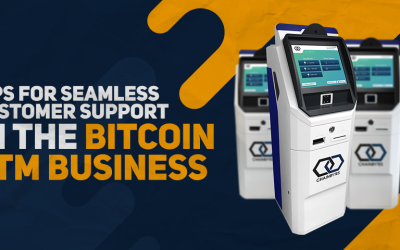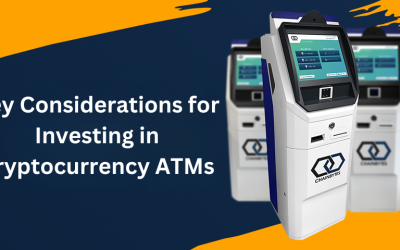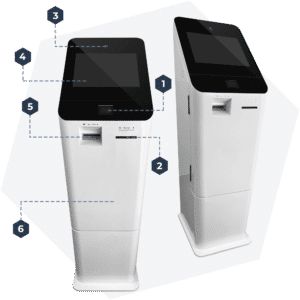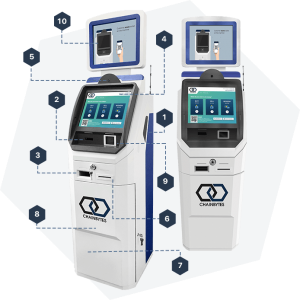NFT (Non-Fungible Tokens) are a type of digital asset that uses tokens to represent ownership on a blockchain. Its most visible use case has been in tokenizing digital art and collectibles. It has emerged from the DeFi (Decentralized Finance) space, with popular support from some creatives and public influencers. Because NFT origins are rooted in the Ethereum ERC-721 token standard, NFT can be purchased with the cryptocurrency ETH (Ether), used on the Ethereum blockchain.
Non-Fungible Tokens Explained
A non-fungible token means that it is not interchangeable with another token. NFT has unique traits that represent the token, so they are used for rare items. It cannot be duplicated, divided, or increased in quantity. You can only have a limited supply of it. This is what gives an NFT value for tokenizing assets. The owner of an NFT establishes digital rights as the owner, which is verified on a blockchain. This tracks the asset’s history and allows the original creator to collect a royalty fee every time the NFT transfers ownership.
NFT can help to settle disputes when it comes to claims and authenticity. The problem today is that art can be prone to fraudulent claims. While you have experts who maintain authenticity and appraisers who determine value, there is no actual verification layer that establishes ownership. With NFT, an artist today no longer needs to have a third party handle their business when they can use an NFT for settlement on a blockchain. NTF records their metadata to prove their claim. They can then sell the NFT to anyone interested in owning their work while still collecting royalties.
Tokenizing Property
While you can tokenize art, validate its creator, and track its ownership, the idea can also be applied to other assets. One of those considerations is for real estate. The land is an asset that has claims to ownership which can have a token. If two individuals claim full ownership of the same piece of property, there can be a problem. Cases like these would be settled in court, but it may not always do justice. There could be wrong filing in the paperwork, lost documents, and worst of all, forgery.
All paperwork required for real estate transactions can be integrated with NFT using what are called smart contracts. These are programmable codes that execute on the Ethereum blockchain to exchange assets. The code can include links to important real estate documents like land title and deed of sale, among others. It may also require proof of the owner’s identity, like a government-issued ID photocopy. What is good about smart contracts is that you can program conditions for the NFT. Let us say that the NFT real estate will require a certain down payment to initiate a transfer on a set date. This can be like an escrow to execute the deal if the initial payment is received.
A testbed for this type of NFT use case is in the metaverse. The metaverse is a virtual world representation that allows users to purchase NFT that represents virtual land and property. Platforms like Decentraland allow users to buy an NFT of a virtual property which they can own. Their ownership is then recorded on a blockchain. The premise here is if NFT can be successful in virtual real estate, it can be applied to actual real estate. That may sound easy, but there are challenges to face regarding implementation.
Summary
In real estate, there are plenty of documents involved for legal purposes and it requires third parties or middlemen in the process. An NFT can help to automate the process of owning real estate to establish claims and verify their owners. However, that would affect the traditional real estate system that requires a lawyer, real estate broker, lender, appraiser, inspector, insurance company and the list goes on. Bypassing the usual participants creates a whole new process.
There are no promises that NFT can fully be implemented to solve problems with real estate. The potential exists in solving the most common problems regarding proof of land ownership. The blockchain can be a testament to that. This will require a due process that must be recognized by the law to be effective. While it is possible to tokenize just about anything and record its owner on a blockchain, it becomes much more complicated with non-digital real-world assets. One factor that might make users hesitate about tokenizing their real estate property is taxes. There are no set of laws regarding NFT and real estate taxes (as of early 2021). In the end, NFT hopes to simplify owning assets like land once a legal framework is standardized.
Glossary Of Terms
Blockchain – A decentralized database for recording verifiable transactions.
Cryptocurrency – A digital asset used as a store of value or form of payment, secured with cryptography.
DeFi (Decentralized Finance) – A blockchain-based financial system that uses cryptocurrency for transactions.
Ethereum – A second-generation blockchain cryptocurrency that features programmable code and development platform for financial applications.
Metadata – Data that contains a description of data (e.g. digital asset).
Metaverse – Virtual blockchain-based worlds driven by cryptocurrency tokens.
NFT (Non-Fungible Tokens) – A token of a digital asset that represents ownership of something (i.e. art, collectible, gaming rewards, tickets, etc.).
Smart Contracts – Programmable code that executes decentralized applications on the Ethereum blockchain.
Follow us on Social Media:
In the meantime, you can follow us on our channels, visit our website, or call us directly!
Check out our website, https://www.chainbytes.com
Give us a call! +1 (415) 529-5777 or shoot us an email.
Related News
Webinar Highlights: How To Start & Grow Your Bitcoin ATM Venture
Wrapping up the year with our final webinar, we took a moment to reflect on an engaging session filled with insights and opportunities. As Bitcoin recently surpassed the monumental $100k mark, interest in the cryptocurrency industry is soaring, making now an ideal...
Tips for Seamless Customer Support in the Bitcoin ATM Business
Effective customer support is crucial for any business, and the Bitcoin ATM industry is no exception. With the growing popularity of cryptocurrency, users increasingly rely on Bitcoin ATMs for quick and easy transactions. However, as with any new technology, customers...
Key Considerations for Investing in Cryptocurrency ATMs
In the evolving world of finance and technology, cryptocurrency ATMs are becoming increasingly popular. These machines offer a tangible interface between the digital and physical realms of finance, allowing users to buy and sell cryptocurrencies with ease. As an...






